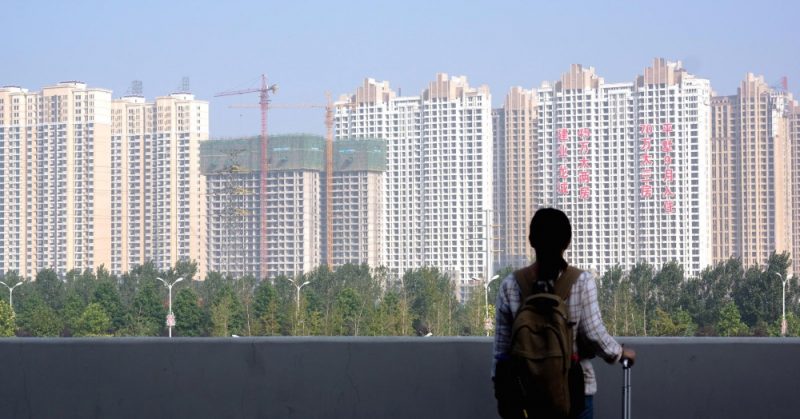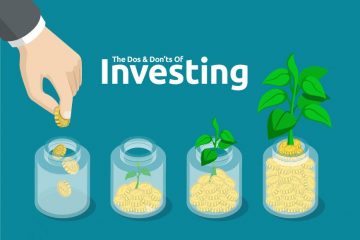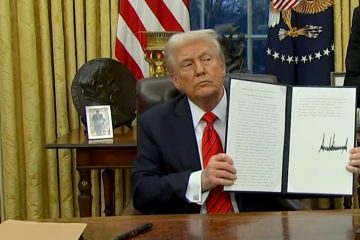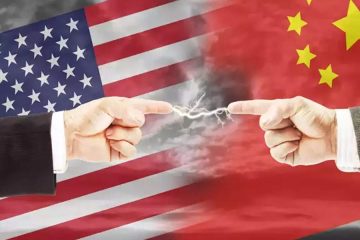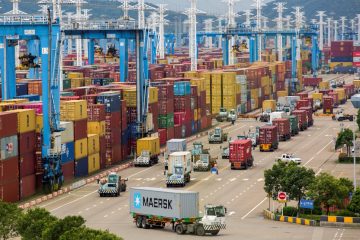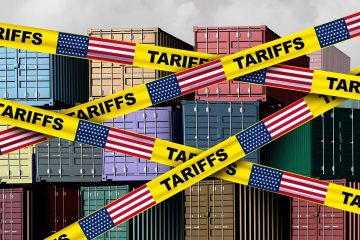While U.S. GDP grew by 2.9% this quarter, trouble is brewing on the other side of the Pacific.
Analysts are sounding the alarm about growing Chinese debt loads and a potential real estate bubble that threatens to dramatically slow growth in Asia, and which could be a drag on the entire global economy if it bursts.
In September, Ma Jun, the chief economist of the People’s Bank of China’s research bureau, argued that the Chinese government must take action to stamp out real estate speculation. “”Measures should be taken to put a brake on the excessive bubble expansion in the property sector, and we should curb excessive financing into the real estate sector,” Ma said, according to a translation of a Chinese news report by Bloomberg News.
Other Chinese analysts have been even more vehement. “The dangers of overly inflated housing prices are huge,” writes Hu Shuli, chief editor of Caixin Media in Beijing. “Indicators such as the ratio of mortgage payments to a buyer’s income indicate that on a relative basis, China’s current housing prices are now more expensive than those during Japan’s property bubble, and are close to U.S. prices just before the global financial crisis exploded.”
Chinese policymakers have instituted measures aimed at cooling the overheating housing market, with some cities imposing “local purchase restrictions, raising mortgage down payment ratios, and tightening developers’ financing,” according to Zhiwei Zhang, chief economist with Deutsche Bank Research. He also points out, however, that these measures may have simply led investors to funnel money into property into cities where real estate has been appreciating less quickly.
Zhang recently conducted an analysis of 252 land auctions in 10 Chinese cities. He found that if land values stayed the same, 105 of those deals would end up being money losers, which suggests that developers still believe land values will continue to rise, despite the warning signs. Meanwhile, mortgage loan growth continues to explode, up 88% YTD in September.
The Wall Street Journal on Tuesday also pointed to bubbles forming in China in other assets, from calligraphy to pig feed to PVC used for making pipes. “There are very few places left to invest in the real economy, so the money goes into the so-called virtual economy,” Yang Delong, chief economist at First Seafront Fund Management Co., told the Journal.
Many analysts are predicting that these bubbles, especially those in real estate markets, are presaging serious trouble for the Chinese economy and ultimately for the globe. It’s unlikely that the Chinese real estate bubble, however, will create a financial crisis like the recent subprime bubble in America. The roots of that crisis were that banks lent to borrowers who could not repay their loans, and this inability to repay initiated a chain reaction through the financial system. In China, real estate borrowers have the collateral to repay their creditors if they can’t make their debt payments.
Still, the existence of these bubbles are an indication of the lack of other investments available to Chinese savers, a problem that has troubling global economic implications. The Chinese government has long capped what banks can pay savers, and is also now cracking down on attempts by citizens to move their savings abroad in search of better returns. These policies help the government funnel those savings at low rates to politically important state-owned enterprises, helping to keep unemployment low.
But this strategy also hinders China’s transition to a more consumption-driven economy, and underscores the government’s wariness of enduring any period of significant economic slowdown or unemployment during that transition. Meanwhile, the government and state-owned enterprises continue to crowd out the more dynamic private sector, making inefficient investments for the future. George Mason University economist Tyler Cowen has worried that this habit of papering over slower growth with investments in projects that will not make the country richer in the long term will just make the cost of rebalancing the economy that much larger over time.
This might not matter much if the rest of the world were expanding robustly. But much of the rich world is barely growing at all, so China accounts for nearly half of all global GDP growth. If an inflating real estate bubble—and the unwillingness of China’s leaders to institute genuine reforms—lead to a significant slowdown in East Asia, it could be a problem that infects the global economy as a whole.

